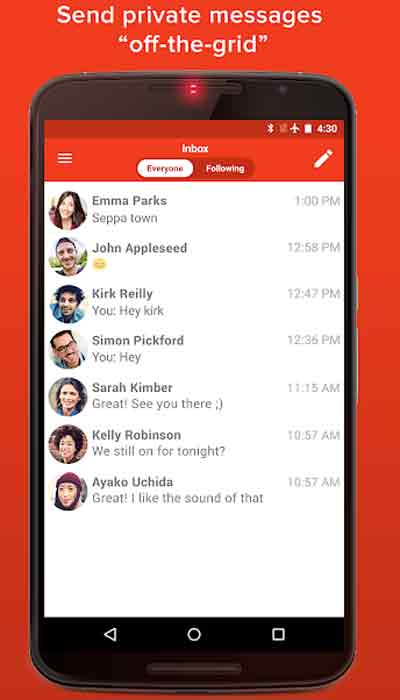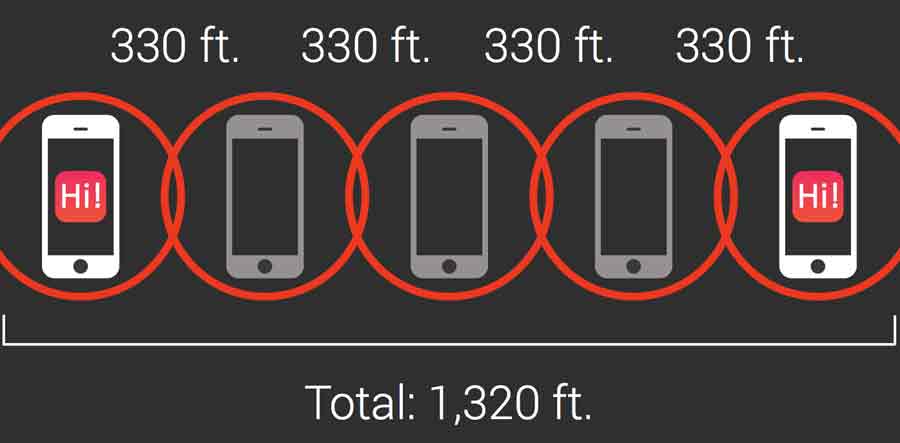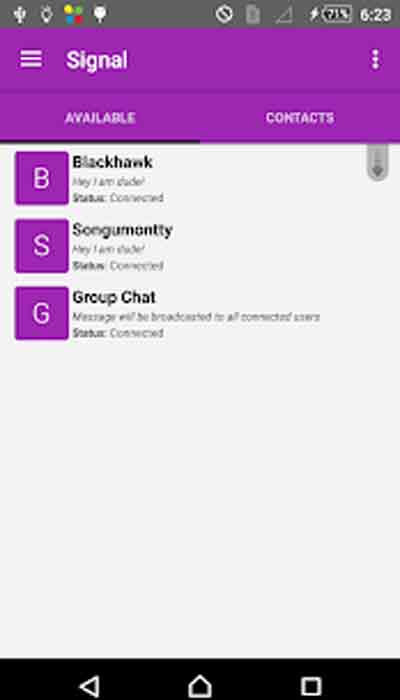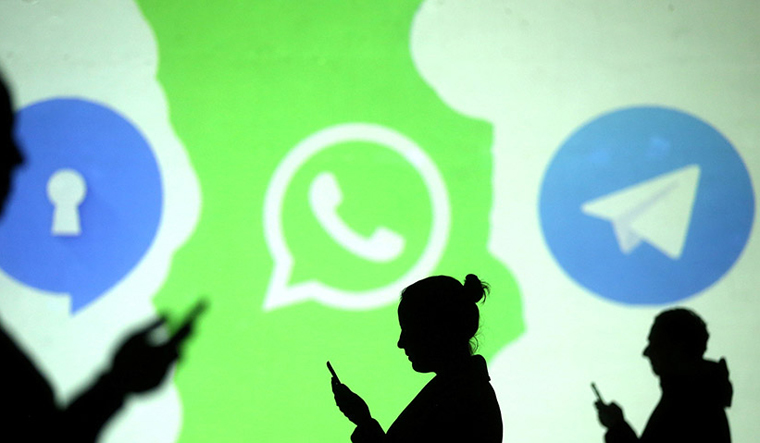India is now the world leader in something its tech-savvy Prime Minister, Narendra Modi, might not be really proud of. In its attempt to curb the spread of dissent, the Modi-led government has normalised internet shutdowns in the country. As a result, India has become the internet shutdown capital of the world.
What was only a far-fetched reality until now, may or may not reach your neighbourhood. But it is better to be prepared than to regret later.
Thankfully, the digital world has developed apps to help users communicate in the event of an internet blackout. Mesh-based apps such as FireChat, Bridgefy, Signal Offline and Briar, and virtual walkie-talkie app Vojer will help you connect to your contacts in case of emergencies. However, please note to download the apps from Google Playstore and App store when you have access to internet and/or if you're anticipating an internet shutdown.
FireChat
FireChat is a free peer-to-peer messaging app that works with or without Internet access or cellular data to send text and images. The app lets you send messages directly between mobile devices using peer-to-peer Bluetooth and WiFi connections. Every device with a FireChat app acts as a relay or a cell tower, creating a mesh network among groups within 200 feet in your phone to communicate directly with other devices that are also running FireChat.

Firechat transfers message from person to person in an encrypted format; first to the mobile next to you, then to the person next to them and so on. The message reaches the intended person but with a slight delay. FireChat's efficiency increases with the number of people using the app. The more the number of users, the more effectively and swiftly will the message get transferred.
FireChat also has a public chat where the messages posted are visible to others. In case of emergencies, this feature can be used to reach a larger audience. However, you should also be aware that police and law enforcement agencies will also have access to such messages.
The app was used by community organisers, emergency responders and private citizens to communicate when cut off from outside networks, including in the pro-democracy protests in Taiwan and Hong Kong.
Bridgefy
 The mesh network, like that in FireChat, connects one smartphone to another and likewise, creates a long line of communication | Image courtesy: Jorge Ribs Medium post
The mesh network, like that in FireChat, connects one smartphone to another and likewise, creates a long line of communication | Image courtesy: Jorge Ribs Medium post
Similar to FireChat, Bridgefy also uses Bluetooth connectivity to connect with different phones to relay messages. Smartphones can connect over a range of 330 feet (100 meters). The mesh network, like that in FireChat, connects one smartphone to another and likewise, creates a long line of communication. "The people in the middle don’t have access to your messages, have to perform any action whatsoever, or have to be in your contacts list," explains blogger Jorge Ribbs in Medium.
Users can use Bridgefy to even 'broadcast' messages. The 'broadcast', which is a virtual chat room, allows you to text anybody around you that is also using the Bridgefy app, even if they’re not on your contacts list. You can automatically connect with up to 6–7 people at a time, noted Jorge.
Briar
Briar is another messaging app that connects one phone to another via Bluetooth or Wi-Fi, keeping information flowing in a crisis. Briar uses direct, encrypted connections between users to prevent surveillance and censorship. Since messages via Briar are encrypted, the app has ruled out chances of potential surveillance and censorship threats.
Signal Offline
Signal is also a peer-to-peer technology, which enables Android devices to connect directly to each other via WiFi without any intermediate access point. Unlike Briar and Bridgefy, Signal is an offline messaging app that connects via Wifi Direct. Signal allows you to communicate without internet or local network in range of upto 100 meters. Messaging could be one-on-one or in a group. Signal allows you to send audio, text, photo and video messages to users around you over WiFi direct.

On start-up, the Signal app sends a signal to discover nearby devices. User can send additional signals by swiping the available list. Once the devices are found, they appear in the available user list. A grey colour signifies no connection while colours indicate that the device is connected. Once the devices are found, Signal establishes connections between the devices.
Vojer
Vojer app lets you make voice calls in high quality, even if there is no connection available on your device. The app actually turns your device into a walkie-talkie or a two-way radio. The app enables you to share information with those friends that are nearby. You'll receive a confirmation once your message has been delivered. The app developers claim that all messages received and sent are encrypted to keep them private. However, Vojer is available only for iOS devices.
India's internet shutdowns
According to internetshutdowns.in, an online portal run by SFLC, an NGO that works to strengthen digital rights, there has been about 101 incidents of government-ordered internet blackouts till date in 2019.
also read
- Did Farooq Abdullah ‘secretly support’ Article 370 abrogation? Ex-RAW chief Dulat’s book stirs political row
- Why Jammu & Kashmir govt has banned school, college picnics
- Why PM Modi’s inauguration of the train to Kashmir has been postponed
- Internal restructuring or winding up? Future unclear as Ghulam Nabi Azad dissolves all units of DPAP party
It all began in Jammu and Kashmir with the abrogation of Article 370 on August 5. It was then termed as a preventive shutdown imposed to control resistance to the government cancelling special status accorded to Jammu and Kashmir. It has been more than 136 days and counting, but the suspension of mobile internet continues in the valley. Looks like, the internet blackout in Kashmir was just a teaser.
Four months later, telecom service providers pulling the plug on internet has become a norm in the country rattled by mass uprising against the recently passed Citizenship Amendment Act. The message was loud enough when the Centre ordered to snap communication in certain areas of the national capital in Delhi on Thursday. The communication shutdown witnessed in Delhi even brought media houses to a standstill, at least for a while.



